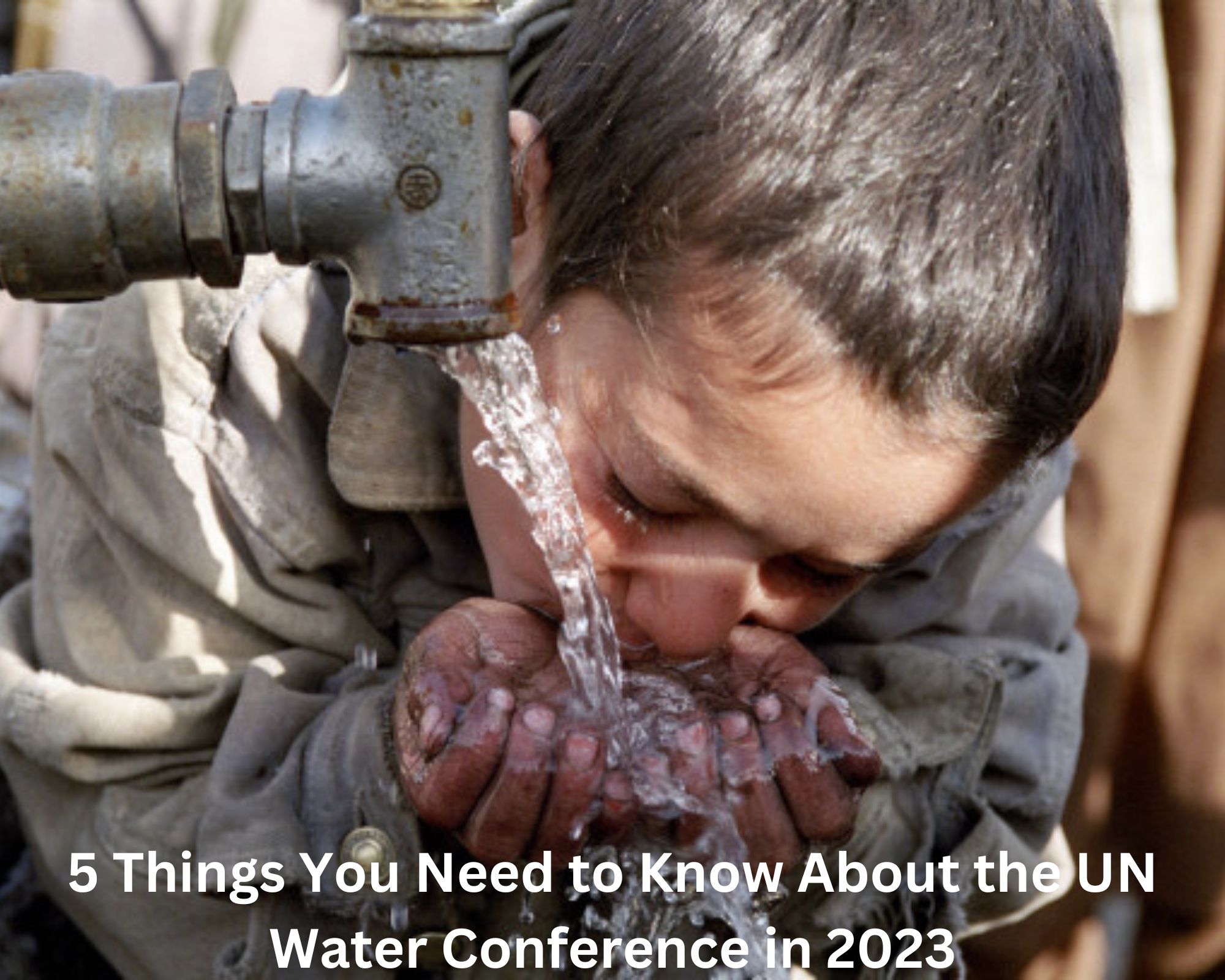Summary:
-
Sustainable water management may promote adaptability, lessen the effects of climate change, and safeguard ecosystems and societies.
-
The UN’s 2030 Agenda for a more just future includes Sustainable Development Goal 6: guaranteeing access to safe water, sanitation, and hygiene for all.
-
The Water Action Agenda will include all water-related voluntary commitments and track their progress and will be one of the Conference’s primary deliverables.
-
The Conference will feature five “interactive conversations” to improve and expedite action for major water concerns.
-
The interactive discussions also promote the SDG 6 Global Acceleration Framework’s five guiding principles, which aim to achieve universal access to and sustainable management of water and sanitation by 2030. The following five dialogues are interactive: Water for Health: Access to clean, safe drinking water.
Water is at the core of sustainable development. Many elements of life on Earth depend on it, and having access to safe and clean water is a fundamental human right. Water stress has increased due to decades of poor management and abuse, endangering the various facets of life that depend on this precious resource.
1. A global water catastrophe is occurring.
A healthy ecosystem, gender equality, decreased poverty, and created energy and food depend on water.
But there is a global water issue right now. There are still many millions of people without access to clean water. According to estimates, over 800,000 individuals die yearly from illnesses directly linked to contaminated water, poor sanitation, and poor hygiene habits.
Over four billion people worldwide endure acute water scarcity for at least one month of the year, reflecting the growing demand for this valuable resource. Given how fundamental water is to so many parts of life, it is crucial to safeguard it and manage it properly so that by 2023, everyone will have fair access to this resource.
2. Water and climate are intertwined.
The effects of climate change on the water can be seen and felt at an accelerated rate, including rising floods, irregular rainfall, and droughts. These effects risk biodiversity, sustainable development, and people’s access to clean water and restrooms.
According to the World Meteorological Organization’s (WMO) most recent State of the Climate Services on Water report, water-related dangers have risen alarmingly. The frequency of floods has grown by 134% since 2000, while the length of droughts has increased by 29%.
Yet another critical factor in combating climate change is water. Protecting wetlands and peatlands can help increase carbon storage, implementing sustainable agricultural practices can help ease the strain on freshwater resources, and enhancing infrastructure for water supply and sanitation can guarantee that everyone has access to essential resources in the future.
Climate policies and action must be centred on water. Sustainable water management may promote adaptability, lessen the effects of climate change, and safeguard ecosystems and societies. Water solutions that are scalable, economical, and sustainable need to take precedence.
3. Bold new pledges are on the table after 40 years.
The UN 2023 Water Conference will be a vital occasion to decide on concerted action to “take action and address the broad concerns surrounding water,” in the words of Li Junhua, UN Under-Secretary-General for Economic and Social Affairs (DESA) and the Secretary-General of the event.
The UN’s 2030 Agenda for a more just future includes Sustainable Development Goal 6: guaranteeing access to safe water, sanitation, and hygiene for all. The Conference will bring together Heads of State and Government, Ministers, and stakeholders across all relevant sectors to achieve this objective.
The Water Action Agenda will include all water-related voluntary commitments and track their progress and will be one of the Conference’s primary deliverables. The Agenda intends to mobilize Member States, stakeholders, and the private sector to take immediate steps to address the water concerns of the present.
4. Pay attention to these five crucial aspects.
The Conference will feature five “interactive conversations” to improve and expedite action for major water concerns.
The interactive discussions also promote the SDG 6 Global Acceleration Framework’s five guiding principles, which aim to achieve universal access to and sustainable management of water and sanitation by 2030.
The following five dialogues are interactive:
- Water for Health: Having access to clean, safe drinking water.
- Valuing water, the water-energy-food nexus, and sustainable economic and urban development are all critical aspects of water for sustainable development.
- Source to sea, biodiversity, climate, resilience, and disaster risk reduction depends on water for temperature, environment, and strength.
- Water for Cooperation: Cross-sectoral Collaboration, Transboundary and International Water Cooperation, and Water Across the 2030 Agenda.
- We are increasing the implementation of the Water Action Decade’s goals, mainly through the Action Plan of the UN Secretary-General.
5. How can you participate?
. Not only for the sake of it but for the sake of it. Not only that but for the sake of. The UN urges everyone to act as UN Member States, governments, and stakeholders prepare to announce their water commitments. No matter how modest or significant, each effort can hasten change and action toward achieving SDG 6’s objectives.
The following straightforward activities can be incorporated into regular routines:
- Reduce water waste in your home by taking shorter showers. Considering that 44% of residential wastewater is not adequately handled, shaving time off batteries is a great way to conserve this valuable resource. A Lazy Person’s Guide to Water Conservation
- Engage in the local lake, river, or wetland cleanups. Make your water garden or a tree plantation. These steps can help lessen the risk of flooding, safeguard aquatic ecosystems from pollution, and store water effectively.
- Convey the critical relationship between menstruation, sanitation, and toilets. You can break taboos by starting talks in your neighbourhood, classroom, or place of employment.


[…] fostering innovation and entrepreneurship in areas like sustainable agriculture, waste management, water conservation, and eco-friendly products can unlock economic opportunities and promote the adoption of […]